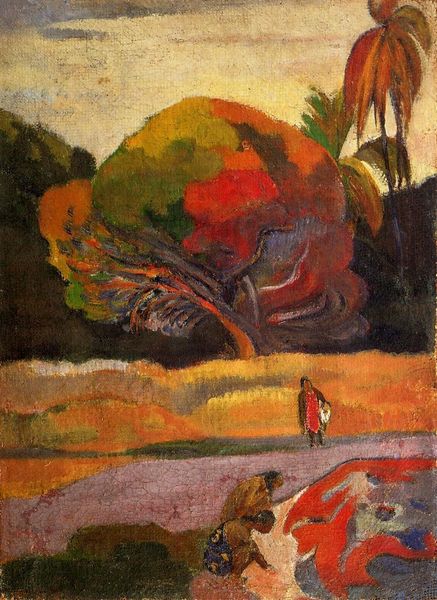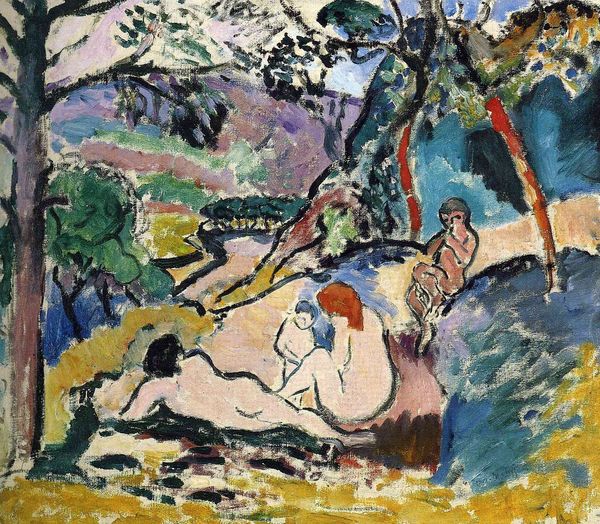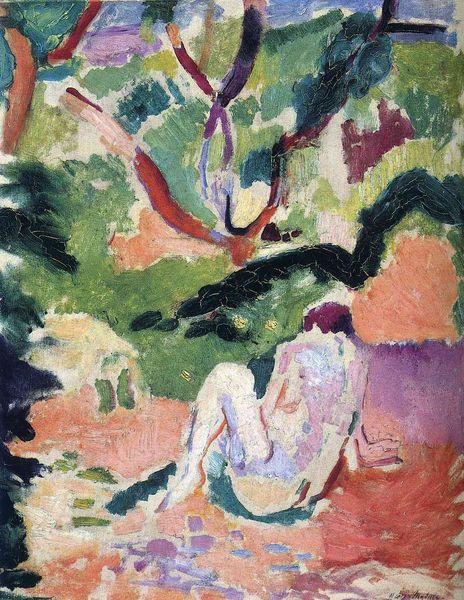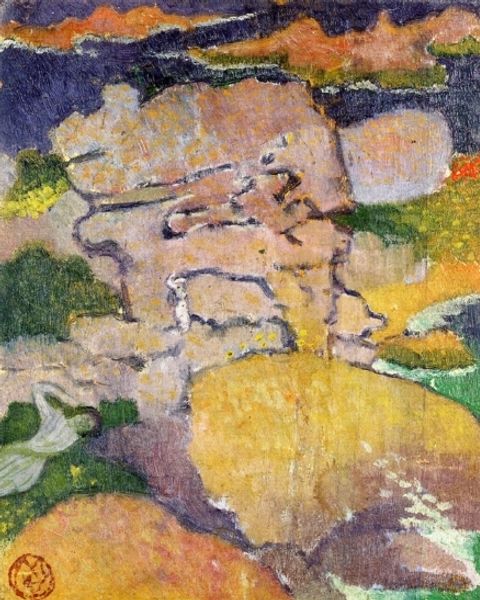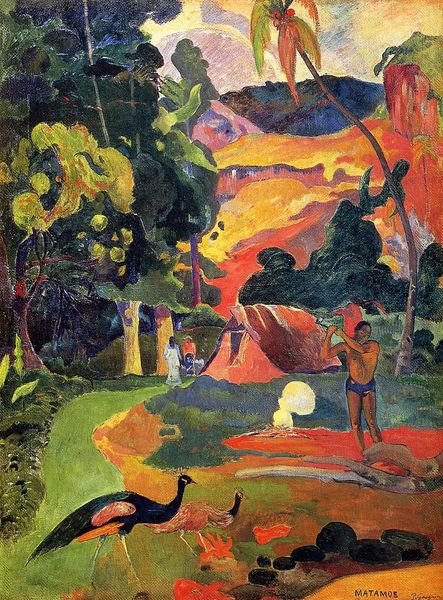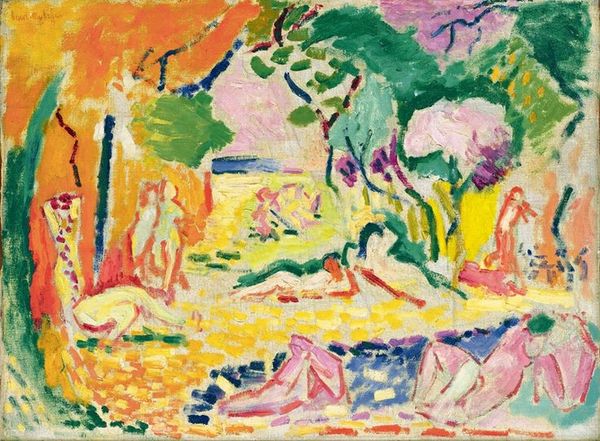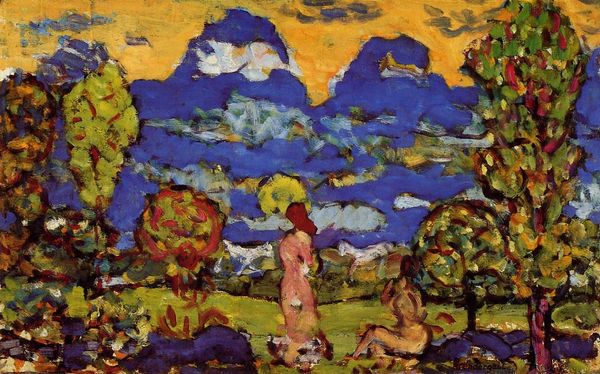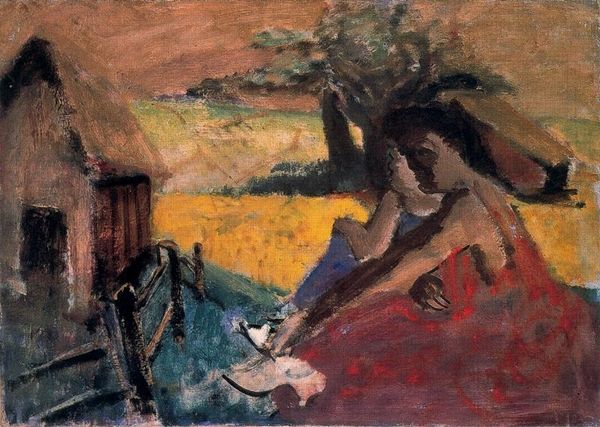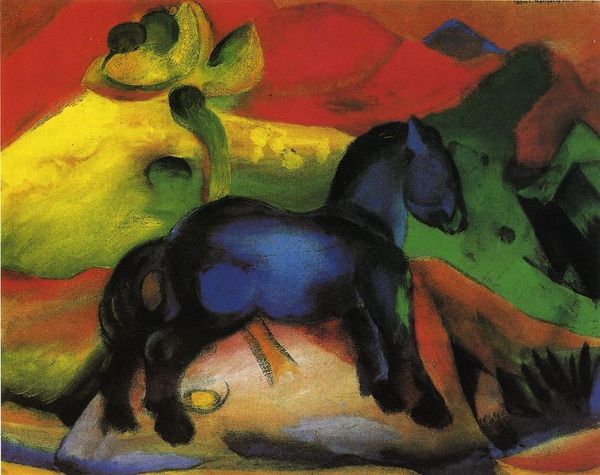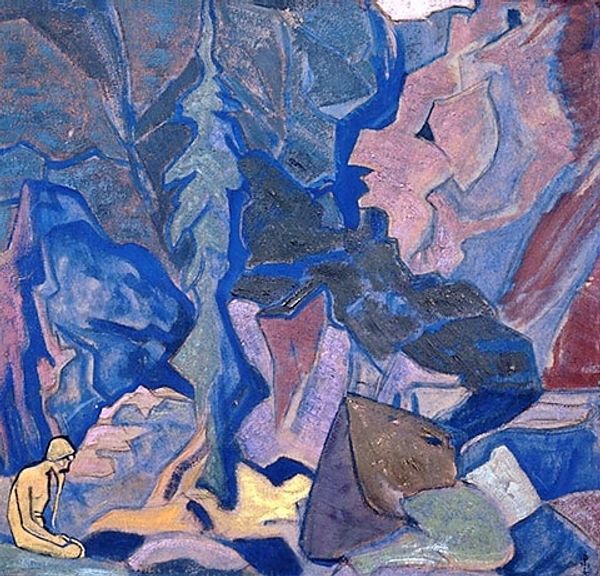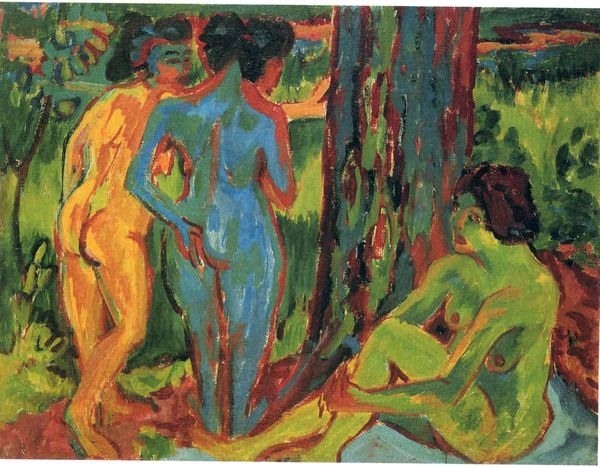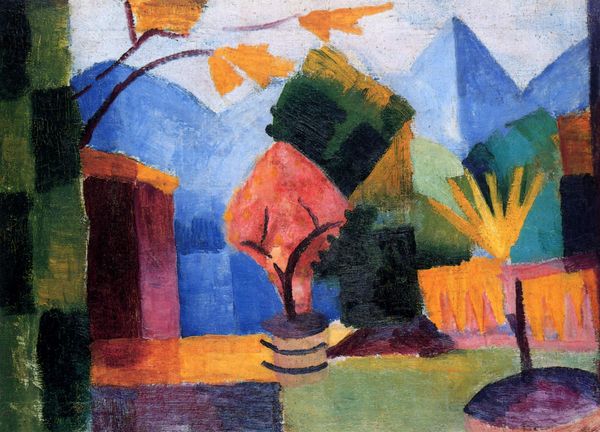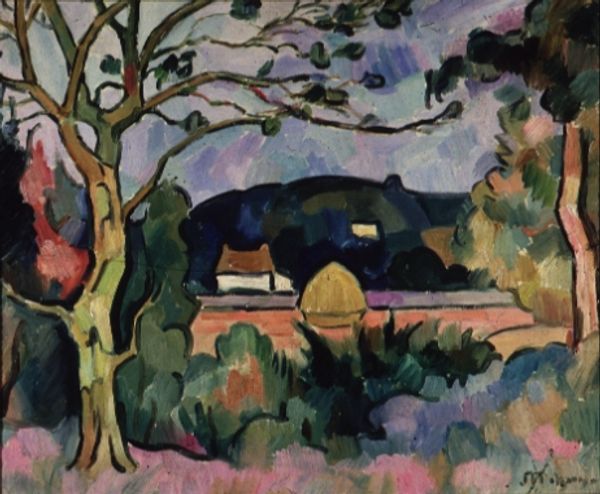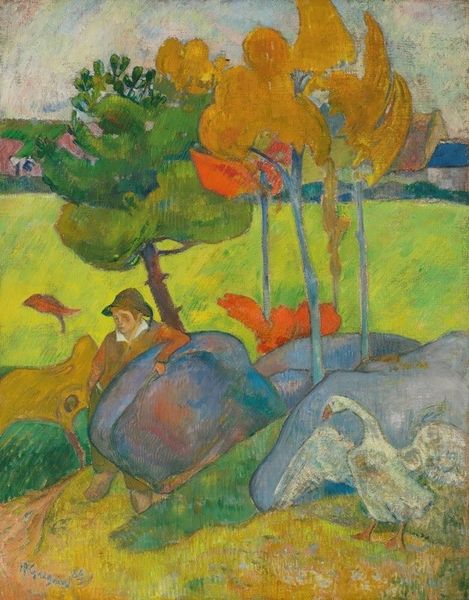
#
abstract expressionism
#
abstract painting
#
possibly oil pastel
#
handmade artwork painting
#
oil painting
#
fluid art
#
acrylic on canvas
#
paint stroke
#
painting painterly
#
expressionist
Copyright: Public domain US
Curator: This is "The Luxembourg Gardens" painted by Henri Matisse in 1901. It resides here in the Hermitage Museum, a canvas resonating with the dawn of the 20th century. Editor: Immediately, I'm struck by the boldness of color. Those thick, almost clumsy strokes! It feels raw, unresolved somehow, a little… melancholy even with those bright hues. Curator: Melancholy is interesting. The Luxembourg Gardens themselves were a fashionable space for bourgeois Parisians. Matisse, in capturing it, may be exploring the emotional undertones of leisure and public life. The use of complementary colors, like the red and greens, would have been shocking for some at the time. Editor: Shocking, yes, but also deeply felt. Look at how the colors vibrate against each other! It's as if he’s trying to capture not just the visual experience of the gardens but also a specific feeling, an emotional essence, the zeitgeist of modern Parisian existence. Those darker tones – what is their significance in this symphony of color? Curator: Perhaps the darker tones represent the shadows and anxieties beneath the surface of Parisian high society. There’s a tension here; the joy of leisure versus the looming industrial age. Notice how those dark greens and blues give weight to the composition, preventing it from becoming simply decorative. Editor: And the composition is so interesting – these large shapes are looming, powerful in their placement on the canvas and that blue path – like the unconscious itself, a river dividing our perceptions from that which remains unknown to us? I see this canvas as a commentary about perception – one about the inner turmoil hidden within social conformity. Curator: It’s fascinating how these interpretations evolve. Matisse’s painting might have initially aimed to just represent an external landscape but over time, the psychological depths are more important for viewers like you or me. That makes art relevant. Editor: Agreed. Seeing through the symbols allows us to unearth their emotional weight, bridging then and now. Thank you, Matisse. Curator: A beautiful observation – it has indeed been a fruitful exploration.
Comments
No comments
Be the first to comment and join the conversation on the ultimate creative platform.
